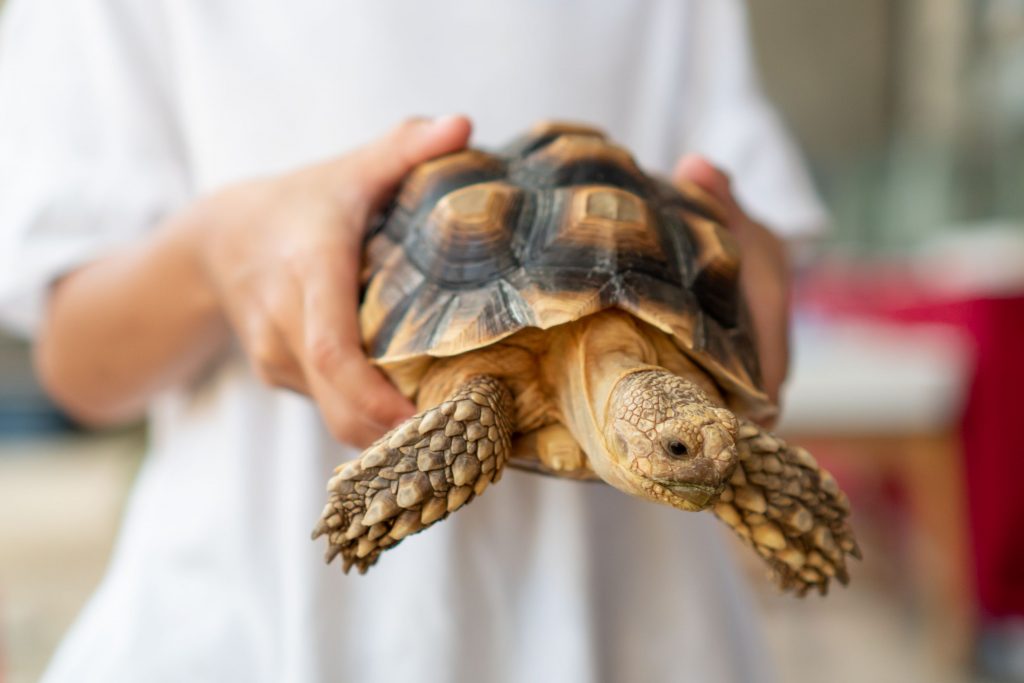
There are many reasons why an individual decides to live with a pet tortoise. Aside from being quiet and peaceful animals, they are truly fascinating to observe and engage with. In other words, they add value to an owner’s environment and bring loads of joy and satisfaction to boot. However, as with all pets, caring for a pet tortoise requires careful planning and preparation.
Making a Match
A healthy pet tortoise appears alert and clean. Prospective owners should look for any possible signs of illness or injury. Take into account the appearance of the shell, eyes, nose/beak, skin, and muscle tone. They should be able to easily lift themselves off the ground, walk freely, and breath without straining.
Soon after you adopt a pet tortoise, we recommend scheduling an exotic pet wellness exam. We can ensure that your new pet tortoise is in great health, and make recommendations for care at home. A fecal exam and bloodwork may be an important priority to your household, as some zoonotic diseases, including Salmonella, can be transmitted between tortoises and people.
Acquiring Gear and Supplies
The enclosure you decide on for your pet tortoise depends on how big they’ll eventually get. Keeping in mind their needs for balanced temperature and humidity, you’ll need to provide housing that promotes a warm, humid basking spot. They also seek relief in a wading dish nearby.
You can mitigate issues related to heat by installing easy-to-read
Healthy and Happy
In addition to a dry, clean substrate, proper ventilation is key to their health. As such glass aquariums aren’t always the best fit for a pet tortoise enclosure.
Other environmental hazards to avoid include:
- Direct contact with heat sources
- Unsupervised roaming beyond the confines of their enclosure
- Proximity to the food dishes of other household pets (never allow them to eat cat or dog food), toxic chemicals, and things they could eat or choke on.
Other Considerations
Depending on the individual needs of your pet tortoise, and your backyard situation, it could be ideal to house them outside. However, they should always be protected from predators and other risks to their health and safety. If extreme weather is predicted, bring your pet tortoise inside to an already prepared indoor enclosure.
When outside, a pet tortoise should also have a thick substrate on the bottom of their enclosure that prevents them from digging and escaping. They should also have the choice of shelters and non-toxic plants to enjoy.
Direct exposure to the sun is critical for a pet tortoise’s ability to absorb calcium from their diet, but can be achieved through a UVB light as well.
The Good Stuff
A pet tortoise happily munches on various fruits and vegetables. They must have access to clean drinking water; they often go to the bathroom in their wading dishes. We can help you design the best possible diet for your unique pet tortoise.
Love Your Pet Tortoise
Just like cats and dogs, exotic pets require and benefit from routine veterinarian attention. We can help you prevent various illnesses from potential parasites, infection, shell rot, malnutrition, and injuries, and promote the lifelong health of your pet tortoise.
If you have any questions about these interesting animals, please call us at (818) 614-9929. Our team at Shiloh Veterinary Hospital can’t wait to serve you!
